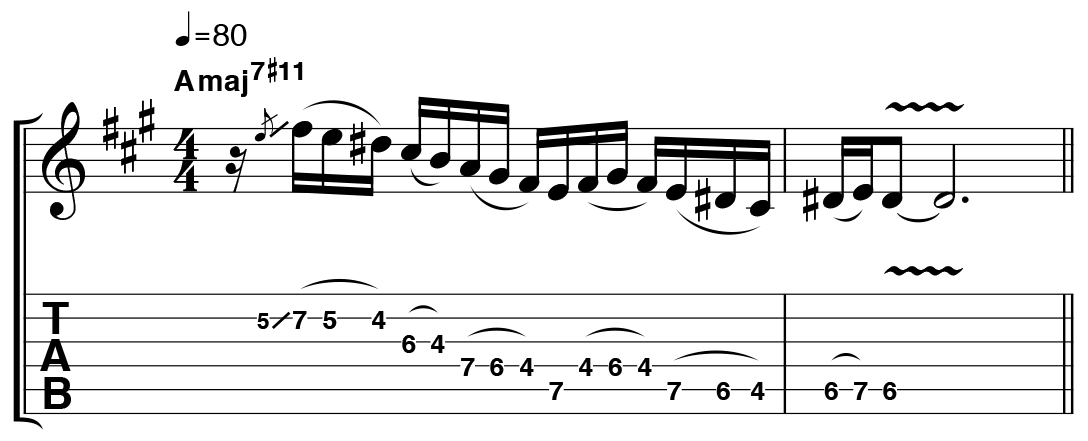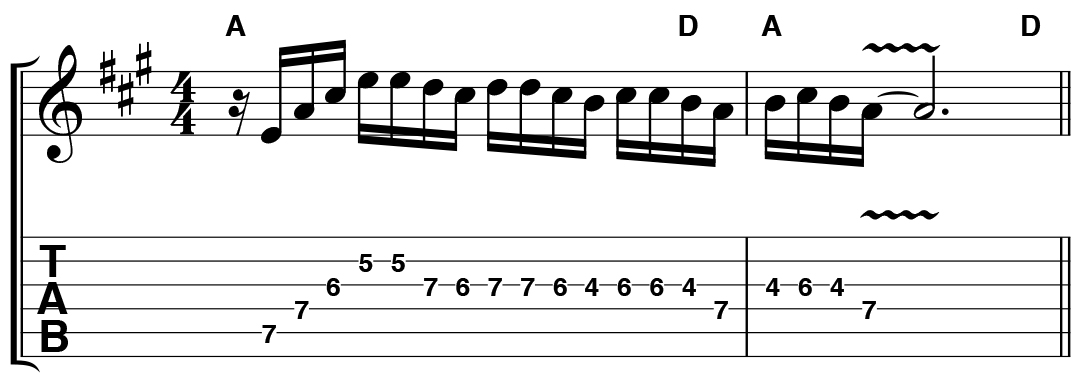Master the modes with this in-depth guitar lesson
Essential scales demystified

The subject of modes crops up time and again among guitarists wishing to inject new flavours into their solos.
The main challenge is learning a bunch of new scale shapes. However, this can be made easier by associating each mode with a musical mood - sure, you may find yourself having to look up the scale shapes at first, but if you know the vibe you’re after then you can be sure that you’ll get pretty close.
We’ve tabbed out a lick per mode, starting with the brightest sounding mode, the Lydian, and gradually working towards the darkest mode of all, the Locrian. Generally, the more flattened intervals a mode has, the darker and more tense it will sound.
Lydian mode lick
Mood: bright but dissonant, left-field
Intervals: 1 2 3 #4 5 6 7
The #4 (aka #11) interval gives this mode its bright but slightly clashing sound. Joe Satriani uses this mode extensively so we’re aping his playing style here in our lick.
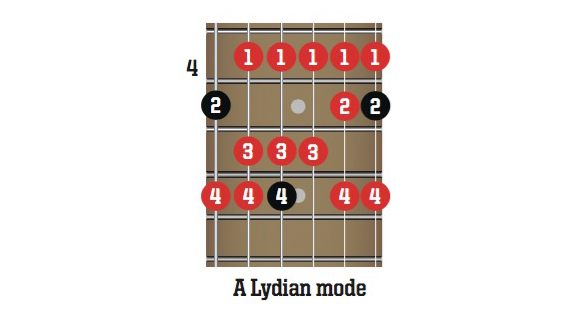
Ionian mode lick
Mood: bright, happy, steady
Want all the hottest music and gear news, reviews, deals, features and more, direct to your inbox? Sign up here.
Intervals: 1 2 3 4 5 6 7
The Ionian mode is another name for the major scale, so you may already know it. Its happy sound is perfect for our indie-pop style lick or general bright major-key soloing.
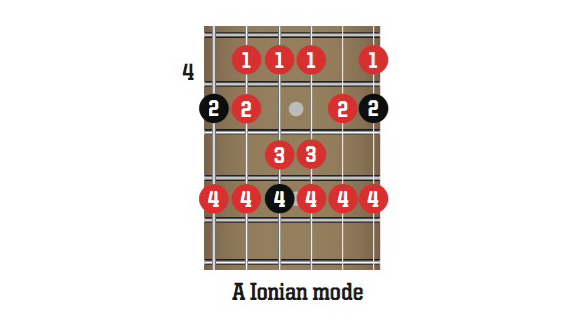
Mixolydian mode lick
Mood: laid-back but bluesy
Intervals: 1 2 3 4 5 6 b7
The Mixolydian mode is a great alternative to the minor pentatonic scale when you’re soloing over a 12-bar blues or dominant 7th chords so keep it in mind for blues and blues-rock jams. BB King’s solo on U2’s When Love Comes To Town is a great example to listen to.
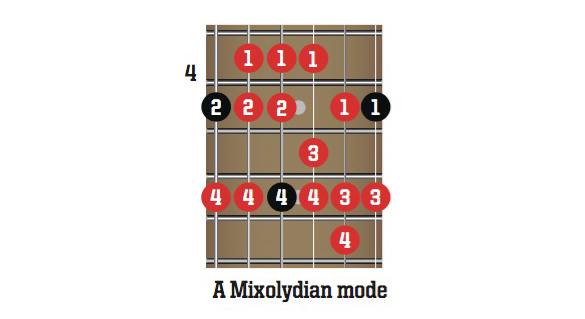
Dorian mode lick
Mood: bittersweet, jazzy, cool
Intervals: 1 2 b3 4 5 6 b7
The Dorian is a minor mode (thanks to its minor 3rd), but the presence of the major 6th interval gives it a contrasting sweeter quality that’s ideal for jazz, funk and fusion sounds. We’ve taken our inspiration from Toto guitarist Steve Lukather, in particular his more progressive solo work.
Aeolian mode lick
Mood: dark, sad, brooding
Intervals: 1 2 b3 4 5 b6 b7
The brooding Aeolian mode is suitable for any style of music when you need a mournful sound. It’s especially good for a classic metal sound, with bands such as Judas Priest and Deep Purple using the scale extensively. This mode contains the five notes of the minor pentatonic – so you can use that, too.
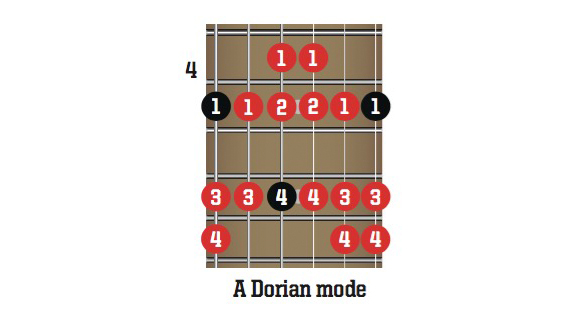
Phrygian mode lick
Mood: dark, aggressive, tense
Intervals: 1 b2 b3 4 5 b6 b7
The Phrygian mode has a striking b2 interval, which can be used to create a Latin flavour or for the thrash sound of bands such as Metallica and Slayer. Whatever style you choose, make sure to switch between the root note and the b2 to really bring out the Phrygian character.
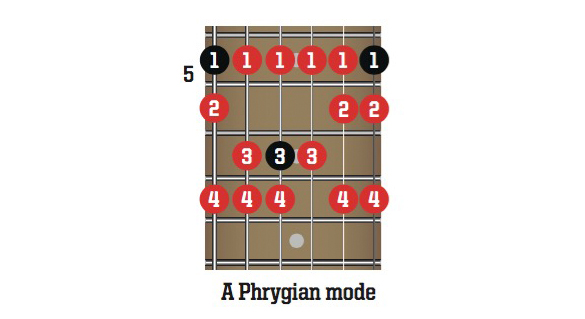
Locrian mode lick
Mood: dissonant, challenging, unusual
Intervals: 1 b2 b3 4 b5 b6 b7
The Locrian mode is the darkest, strangest one of the bunch, sounding highly dissonant in most musical scenarios. Our fusion line is inspired by Scott Henderson and focuses on the 1b3 4 b5 and b7 intervals - all notes that can be found in the blues scale, too. We’d just opt for the blues scale!
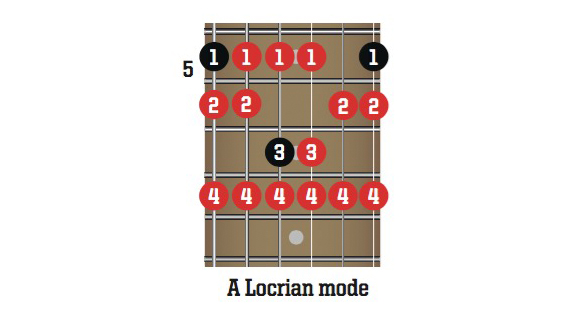
Total Guitar is Europe's best-selling guitar magazine.
Every month we feature interviews with the biggest names and hottest new acts in guitar land, plus Guest Lessons from the stars.
Finally, our Rocked & Rated section is the place to go for reviews, round-ups and help setting up your guitars and gear.
Subscribe: http://bit.ly/totalguitar
